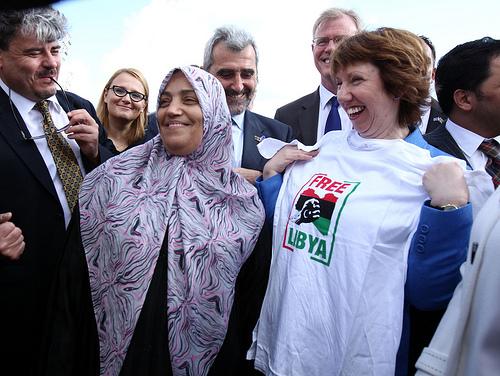Most Libyans are satisfied with their lives and are confident that their country is heading in the right direction; awareness of relations with the European Union is low, but of those that do have an opinion, most are positive towards the role the EU could play in the new Libya.
These are some of the key findings of the recently released Autumn 2012 EU Neighbourhood Barometer for Libya, conducted in the framework of an EU-funded opinion polling project for the Neighbourhood.
The survey, based on 1,012 interviews conducted in November-December 2012, finds that 83% of Libyans are satisfied with the life they lead. A further 71% felt Libya was going in the right direction, with 57% saying the economic situation was good, and 70% confident it would get better; 63% of those asked were satisfied with the way democracy works in Libya – all the figures were well above the average across the southern Mediterranean (ENPI South) region.
The poll found that 34% per cent of respondents felt the EU had good relations with Libya, against just 9% bad, and 55% who didn’t know. Of those asked, 37% saw the EU in a positive light, compared to just 7% for whom it conjured up a negative image.
Of those asked, 27% said the EU was an important partner, with the same number believing the EU and Libya share sufficient common values to be able to cooperate – lower than the average for the ENPI South region (46% and 43% respectively). Of those asked, 27% felt the EU position during the Arab Spring had been supportive of local populations, and 27% felt the EU brought peace and stability to the region.
A quarter (24%) of those asked wanted a greater EU role in economic development, 23% in trade, and 14% in human rights – but on all these questions a consistent 68% did not know.
The poll found that 31% of Libyans trusted the EU – more than other international institutions like the UN (16%) and NATO (13%), but less than they trust their own government (63%), Parliament (60%) or political parties (45%).
Thirty-two per cent of those asked agreed enough information was available about the EU, while 24% agreed it was easy to understand. Most of those asked, however, did not have an opinion.
Factsheets summarising the findings of the EU Neighbourhood Barometers were published to coincide with the release last month of the European Neighbourhood Policy (ENP) package of 2012 progress reports of countries covered by the ENP.
The EU Neighbourhood Barometer (opinion polling and media monitoring) is part of the EU-funded Regional Communication Programme, and aims at assessing knowledge and perception of the EU Neighbourhood Policy and its cooperation activities and programmes.
An infographic produced for the EU Neighbourhood Info Centre highlights some of the key findings across the ENPI South region.
(Source: EU Neighbourhood Info)





